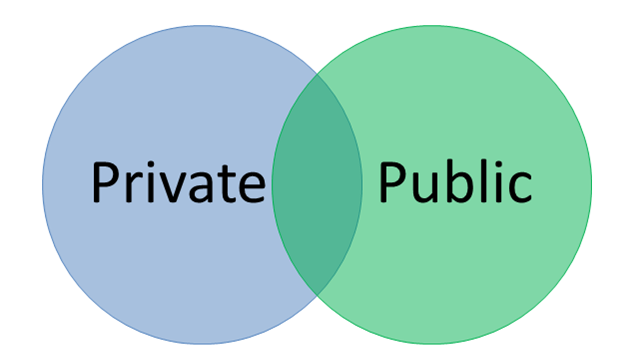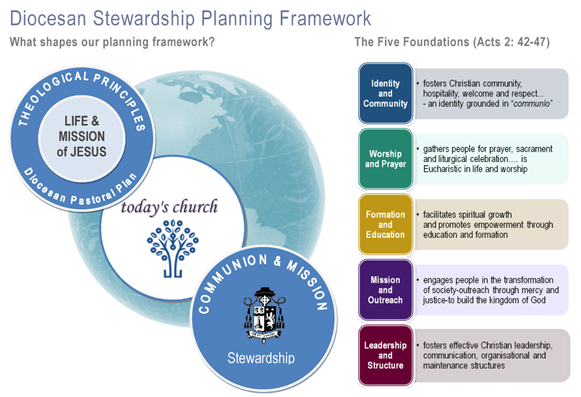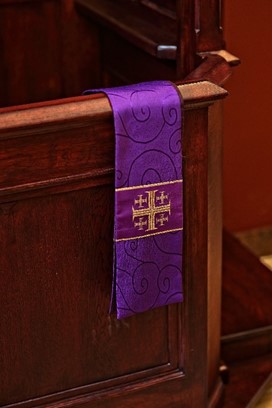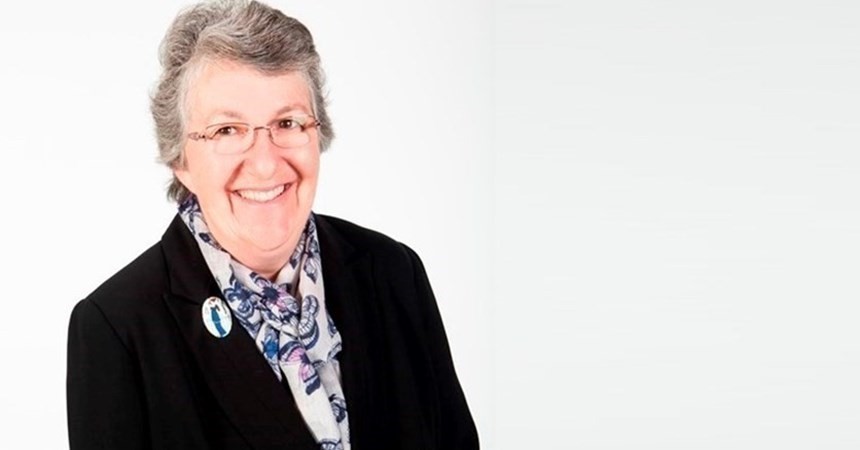I trust some of you are aware of the many online opportunities to be informed and formed around the sacredness of our environment. I am also conscious that Sunday was Social Justice Sunday (https://socialjustice.catholic.org.au/2020/07/03/social-justice-statement-2020-21/) in which the Australian Catholic Bishop’s Statement – To Live Life to the Full: Mental Health in Australia Today – was made available.
During the past week I have attended many meetings and events – Focus Groups and Teams as part of the diocesan synod process, diocesan council meetings (Adult Faith Formation Council and the Diocesan Council for Ministry with Young People), the Bishop’s Awards in which four young people were recognised for the contribution to parish, school and community life; events for Hello Hunter and the Hunter Community Alliance; and the Social Justice event – Making it Real – Genuine Human Encounter in our Digital World.
I do become disappointed that very few people across all of our diocese, its parishes and agencies, do not connect with what is made available to them by way of experiences, information and formation. I believe it is hard to grow in our faith and connection to the Catholic community or wider community when opportunities are not explored.
You may recall that I am in the process of breaking open with you the place of intersection between the public and private spheres of our lives in relationship to our five foundations of church life. It is at the place of intersection that our creative, transformational, exploratory and imaginative ability and energy to act takes place. This is presently the ongoing work of the Discernment of Data Focus Group and its five Focus Teams.

Last week I shared with you the Identity and Community foundation area, and this week I will share with you what the Discernment of Data Focus Group heard in the Worship and Prayer Foundation. You may recall the diagram below which reflects our Diocesan Stewardship Planning Framework.

The Discernment of Data Focus Group reviewed the data from the first session of our own diocesan synod of November last year, as well as information coming from the Plenary Council, particularly the information gathered from our diocesan submissions. This enormous amount of data was then allocated into the five foundations.
Within the foundation Worship and Prayer, the following key areas were identified:
- Prayer, Contemplation, Conversion
- Eucharist
- Mass Attendance
- Homilies
- Gatherings other than Mass
- Sacraments
The members of the Discernment of Data Focus Group then listed what we heard, under each of the key areas
- PRAYER, CONTEMPLATION, CONVERSION
What we heard:
Some Diocesan Plenary Council and Synodal responses believed that:
- As followers of Jesus we are all called to holiness, to deepen our relationship with God, our friendship with Jesus, to be more reflective and self-aware
- We need to trust that if we seek we shall find, if we ask we shall receive, if we knock the door will be open
- We become prayerful and Eucharistic by adopting an attitude of gratefulness (Greek word eucharistia, means 'thanksgiving,')
- EUCHARIST
What we heard:
Some Diocesan Plenary Council and Synodal responses indicated that people saw:
- A need to strengthen and affirm what is already present in the Eucharist: This is the Body of Christ. You are the Body of Christ. Be the Body of Christ
- A need to proclaim the message of mercy, compassion and forgiveness at Eucharist and then go out and live that in the world … through Him, with Him, in Him
- A need to “Do this in remembrance of me.” You are that living Eucharist and the living temple of God. You are the church on mission
- The Eucharist, when lived in everyday life and celebrated in the liturgy as the source and summit of our life as Jesus’ disciples
- MASS ATTENDANCE
What we heard:
Some Diocesan Plenary Council and Synodal responses indicated that people experienced:
- Falling Mass attendance and ageing, diminishing parish communities
- The need for better attention to all aspects of liturgy: music, homilies, translation
- The need to recognise the diversity in faith expression
- Language of Liturgy which presently portrays a very limited way of thinking about God , and continues to use sexist language
- The need for Communion for all, and Eucharistic hospitality
- HOMILIES
What we heard:
Some Diocesan Plenary Council and Synodal responses indicated that people saw the need for:
- Better homilies and pastoral care from priests - stronger and more engaging preaching with emphasis on the Word of God and its connection to people’s everyday lives
- Homilies that support an educated laity in developing mature spirituality, that enable all God’s people to hear the message of the Scriptures delivered in an engaging and appealing manner
- Help for overseas priests to deliver homilies, and to assist them to communicate and apply the Scriptures to Australian life
- Involvement of lay people in presenting homilies - e.g. to share their struggles in their faith lives in an "experience sharing session"
- Ways to allow interaction on the homily - either during or after Mass - in order to encourage missionary service
- A response to Pope Francis' words: So many concerns have been expressed about this important ministry, we cannot simply ignore them. (Evangelli Gaudium #135)
- GATHERINGS OTHER THAN MASS
What we heard:
Some Diocesan Plenary Council and Synodal responses indicated that people saw that:
- At Mass people are relatively passive and never have the opportunity to share their understanding of the Scriptures or their life experiences; only the presider has the opportunity to share his faith at Mass
- Less formal, lay-led gatherings for prayer/worship would give people the opportunity to share their faith and views, to relate community worship and prayer to people’s hopes and fear, joys and suffering, and to build relationships
- Responses to people’s lives impacted by social and natural tragedies can more readily be addressed by more contemporary and less structured prayer/worship forms.
- SACRAMENTS
What we heard:
Some Diocesan Plenary Council and Synodal responses indicated that people saw that:
- The sacraments, for many people, seem to be unrelated to their lives in the real world;
- The reception of the sacraments seem to have little practical effect in making disciples;
- There is great decline in the use of the sacrament of Penance in its present forms;
- There is concern about the administration of the Sacraments of Initiation;
- All the baptised have the right and responsibility for the mission of the Church;
- The celebration of marriage and funerals often cause conflict;
- People often seem to turn away from frequenting the sacraments because of the necessity to abide strictly to liturgical norms
- While there are many parts, there is but one Body, and there are a variety of gifts within the Church waiting to be tapped;
- While parishes/ diocese depend on women for many forms of ministry they are not seen in positions of authority
This group also recalled the following words from the 1992/93 Diocesan Pastoral Plan:
[Our] mission finds its source and summit in the Eucharist
which, when lived in everyday life and celebrated in the liturgy,
is both the living symbol of Christ's life, death and resurrection
and celebrates the deepest identity of the Church
as a communion of life, love and truth (cf. LG 9,11)
Diocesan Pastoral Plan 1.0
And to finish this week’s message, I draw your attention to the second reading (Letter of St Paul to the Romans 12:1-2), from Sunday’s reading:
Think of God’s mercy, my sisters and brothers, and worship God, I beg you, in a way that is worthy of thinking beings, by offering your living bodies as a holy sacrifice, truly pleasing to God. Do not model yourselves on the behaviour of the world around you, but let your behaviour change, modelled by your new mind. This is the only way to discover the will of God and know what is good, what it is that God wants, what is the perfect thing to do.
I believe this is what we are trying to do through the Plenary Council and Diocesan Synod processes. And so, to finish with the prayer we prayed in the Alleluia verse (Ephesians 1:17-18) before the Gospel:
Alleluia, alleluia!
May the Father of our Lord Jesus Christ
enlighten the eyes of our heart,
that we might see how great is the hope
to which we are called.
Alleluia!
There is much to contemplate in this week’s message. Next week we will look at the data through the lens of Formation and Education. May you enjoy the first week of spring with its new life and hope.

